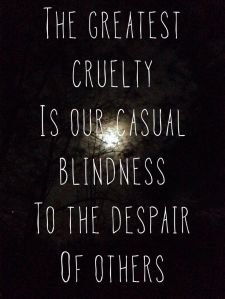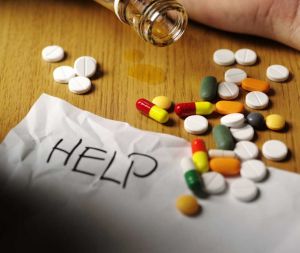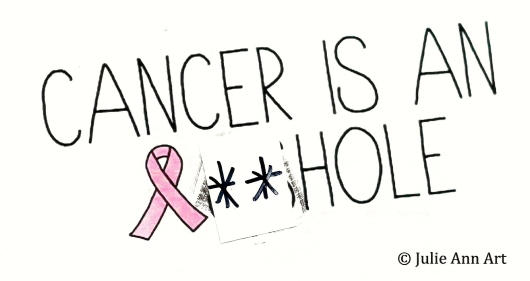I found out today that book I was involved in putting together, “Finding Our Life Force”, has been reviewed on Stephanie Dowrick’s Universal Heart Book Club website (http://www.universalheartbookclub.com/2014/03/walter-mason-on-finding-our-life-force.html).
On checking this out and clicking on a link to my name [as you do :-)], I came across an article that was published online in 2010. In January this year (2014) I celebrated my 20th Anniversary since being diagnosed with breast cancer so I thought it was time to update some things. The article is below, with some amendments to make it more current:
“Jane Gillespie lives in Australia, where she worked with a cancer foundation for 14 years, has a private counselling practice and is an author. She was not always so self-confident. After surviving breast cancer, she fell apart. She had professional counseling and joined a support group. She changed her life, her career, and found a new identity. Jane tells her survivor story here.
Cancer – a Springboard
In 1994 I was a single parent caring for a disabled 16 year old, the only one of my three children still living at home. After my regular annual medical checkup, my doctor recommended that I have a routine mammogram, simply because of my age. How lucky was I! After this first ever mammogram, something suspicious was found and I was diagnosed with breast cancer. This necessitated a lumpectomy and axillary clearance followed by a total mastectomy and seven months of chemotherapy.
My Breakdown
Despite surviving the onslaught of treatment, a few months after this finished I had a breakdown. I had resigned from my job because life seemed too short to be doing something I wasn’t passionate about and my energy levels were so low I had to have some time out. While I was dealing with the disease I’d kept the lid firmly on my feelings about having to face my mortality, but not having work to go to and no more regular hospital visits meant that there was now nothing else to focus on. I couldn’t hide any longer.
Crisis of Identity
Ever since my daughter was born I had believed that my role was to take care of her until she died. Now here I was facing the possibility that I could die first and I agonized over what would become of her. It didn’t matter that my oncologist told me that my prognosis was good. I was convinced that I was going to die without ever having truly lived. My life now seemed to have been a waste. Sure, I’d raised three children, one with special needs, but I couldn’t see me anywhere in the picture. Until then, my whole reason for being was based around my family. I’d always seen myself as a daughter, wife, and mother. I had no sense of identity as an individual.
Help From a New Oncologist
I sent my daughter to live with her father and stepmother and moved to Sydney. Unfortunately, you can’t run away from yourself and I was still crippled by anxiety and panic attacks. Luckily my new oncologist referred me to a psychiatrist who worked with cancer patients. This doctor explained to me that many cancer survivors feel exactly the same way; why wouldn’t I? My whole life had been shaken to its core and my current feelings of grief at the loss of the life I had always known had brought up unresolved grief from the past.
Life Force Cancer Foundation
His prescription for me was to join a support group. My oncologist is one of the Patrons of Life Force Cancer Foundation, so I joined a Life Force support group. My despair about possibly not surviving my daughter could well have become a self-fulfilling prophecy and I believe to this day that attending those meetings saved my life. I was able to work through the grief I felt at the loss of my pre-cancer life. It was immaterial that I didn’t feel that life had amounted to very much. It was all I knew and I was floundering. The other group members let me be a mess for as long as I needed to and this was the best possible medicine for me at that time.
Regaining Confidence
After I’d regained some of my physical strength, I enrolled in a course for women wanting to re-enter the workforce. At the beginning I didn’t believe that I would ever be able to function competently again. I thought that in the unlikely event that anyone would ever want to employ me, I was incapable of learning new skills. However, by the end of the course my shattered confidence was starting to come back.
Career and Family Changes
I got a job as a part-time bank teller and also began a counseling course. I graduated two years later and joined the Life Force Cancer Foundation team. For the next 14 years I co-facilitated between one and four weekly support groups in Sydney for cancer patients and survivors, as well as rural weekend retreats for survivors, patients and caregivers. A year after I left my daughter, I brought her to Sydney. She lived on her own for 17 years, supported by an organization that assists people with disabilities to live independently. However, due to her disability her health began to suffer and she was spending more time in hospital than out of it. After a mammoth struggle, I managed to get funding for her and she now lives in a group home with two other people with the same syndrome. She is extremely happy there and we both have peace of mind now, knowing she will be safe and well looked after for the rest of her life.
Writing, Counseling, Public Speaking
Writing was something I’d loved as a teenager, but I somehow let it go after marriage. In 2000 I enrolled in a novel writing course. I eventually resigned from the bank in 2002 to set up my own counseling practice, and to write the ‘Great Australian Novel’. It took me 12 years but I have now finished the first draft of my novel and am in the process of editing and rewriting. In March 2007 Journey to Me was published. This is a memoir about my experience of surviving cancer and building a new life for myself. I have also had a novella published and have written several others. Writing is my creative outlet and I believe everyone needs something that brings them this kind of pleasure.
Even though I have retired from my work running cancer support groups, I still have my private counseling practice, specializing in grief and loss.
I was spokesperson for the Life Force Cancer Foundation while I worked as a counseling group facilitator and have retained a position on the Management Committee so am still happy to act as spokesperson if the opportunity arises. I occasionally speak at conferences, seminars and service groups about how it is never too late to change your life.
Civil Marriage Celebrant
I trained to become a Civil Marriage Celebrant and was appointed by the Australian Attorney-General in September 2004. Working with my private counseling clients can sometimes be draining and sad. However my role as a marriage celebrant, connecting with happy couples while they are planning their future lives together, balances everything nicely. It is important for me to feel that I make a difference to people’s lives and I believe both my careers help me to do this.
Painting My Life’s Canvas
Last year I was diagnosed with a nasty squamous cell carcinoma (SCC) on my neck and after having this surgically removed, I underwent daily sessions of radiotherapy, five days a week for four weeks. I was astonished at how destabilizing it was when I was given this news; it took me straight back to 1994 when I was diagnosed with breast cancer. This showed me just how lingering the effects of PTSD can be, because it immediately brought forth almost overwhelming anxiety again. Luckily this time I had the knowledge and tools to handle this and with the help of supportive friends and my family I was fairly quickly back on an even keel. I guess the main thing was that this time I knew to ask for help, whereas 20 years ago I felt that I had to do it on my own. Cancer may not be a death sentence, but it is a life sentence. I still live with the Sword of Damocles hanging over me. My diagnosis last year is proof that there are no guarantees. I will never view cancer as a blessing in my life; more like a blunt instrument! However, it did become the springboard for me to make a fulfilling and joyful new life where I have a sense of who I am, just as Me. I love this saying by Danny Kaye: Life is a great big canvas and you should throw as much paint on it as you can.”
(c) 2014 Jane Gillespie – google.com/+JANEGILLESPIEHolisticCounsellor





